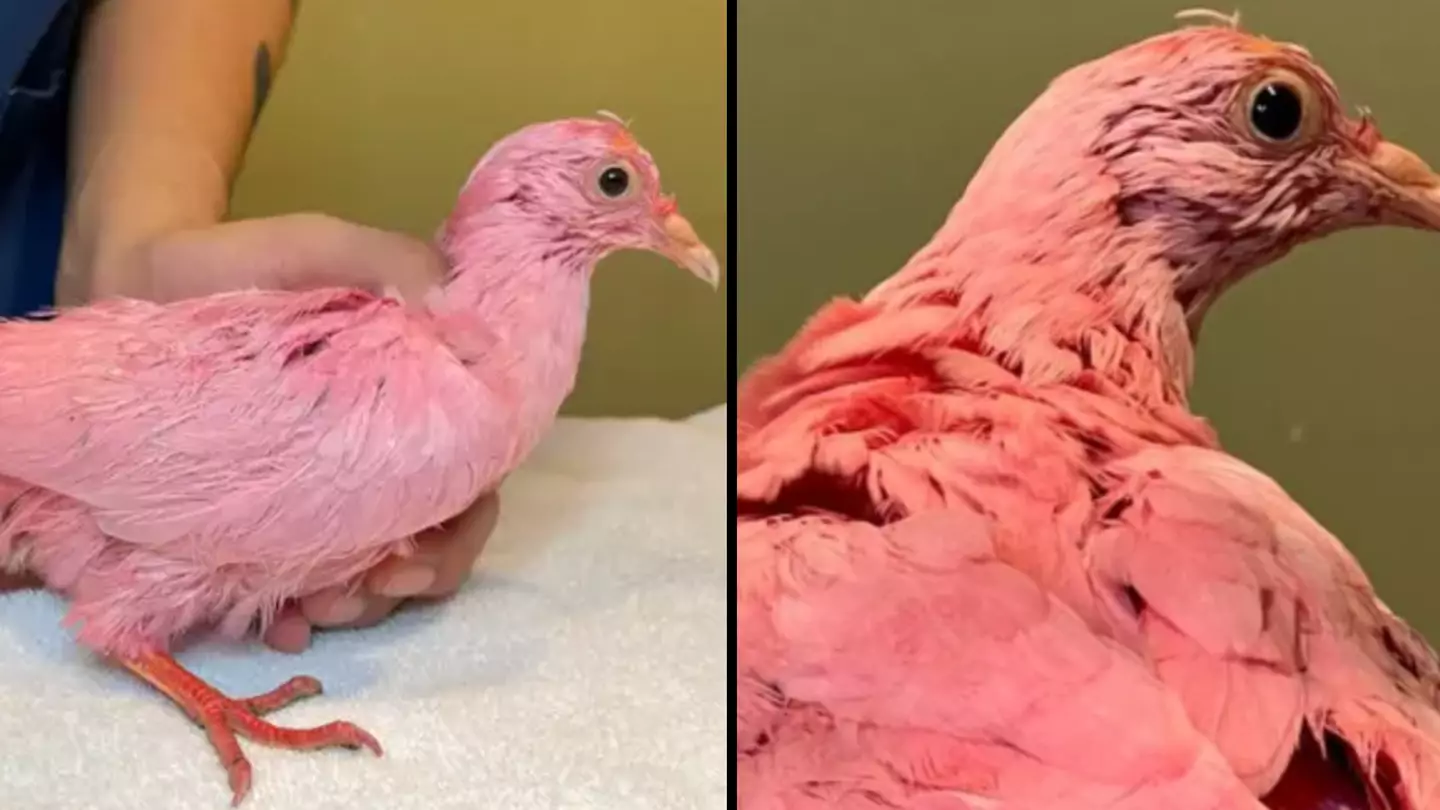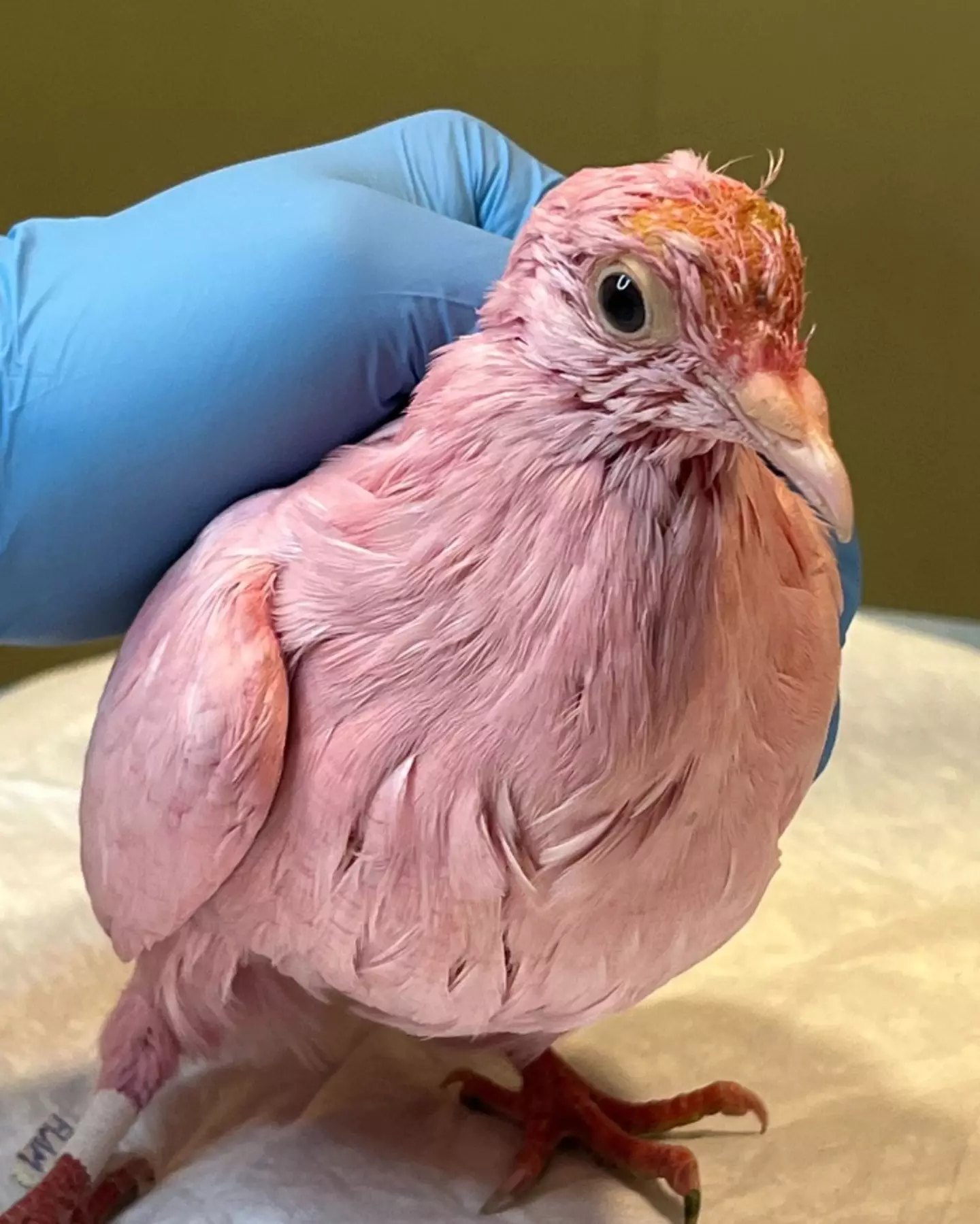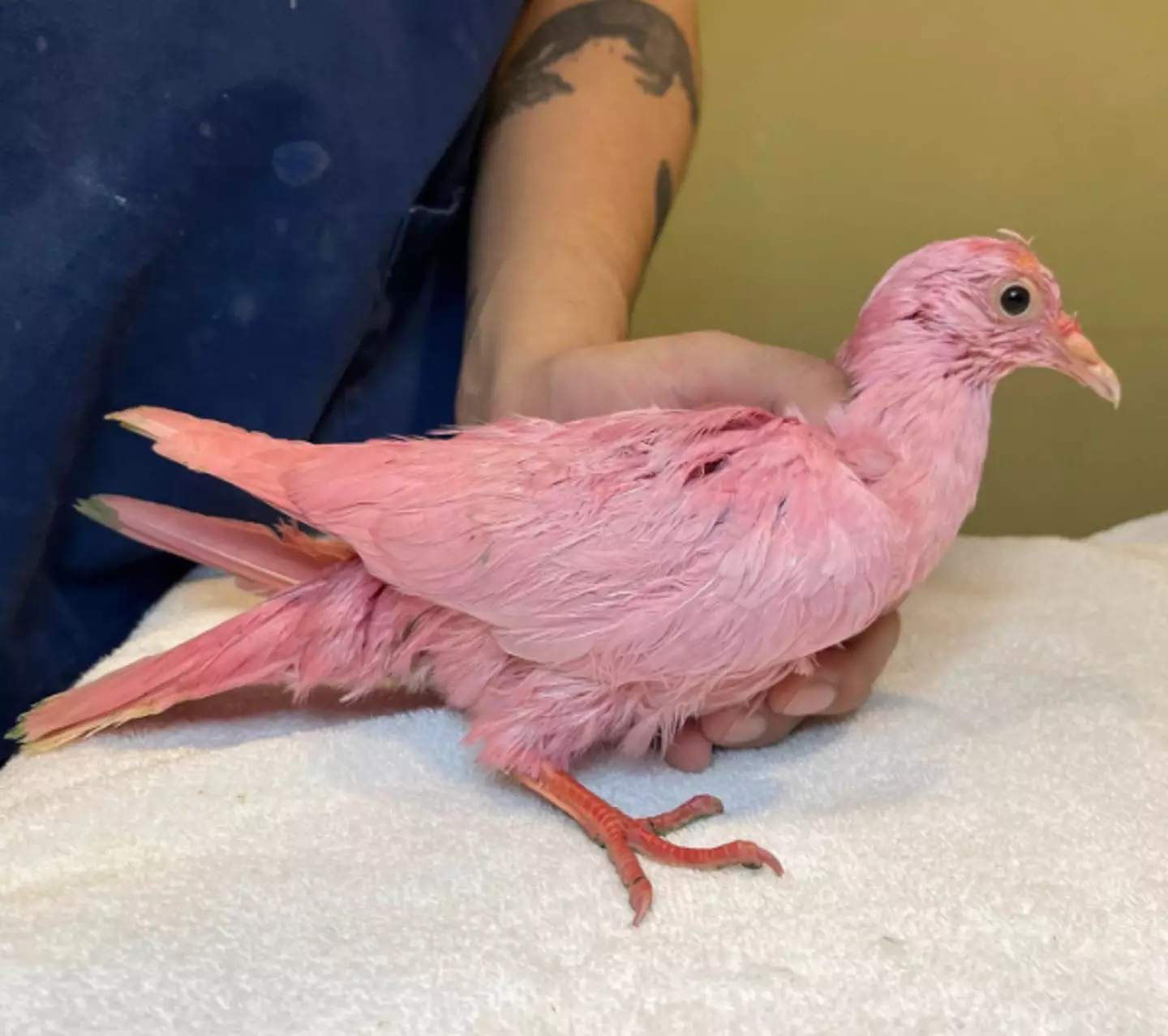
A bird charity has spoken out after a pigeon died from 'inhaling the toxins' from pink dye, allegedly used on it for a gender reveal party.
On Monday, 6 February, a domestic king pink pigeon - since named Flamingo - was spotted in Madison Square park in New York, US.
Flamingo was taken in by non-profit wildlife rehabilitation and education centre Wild Bird Fund - the organisation of which believes the bird was 'deliberately dyed' for a gender reveal ceremony.
Advert
Wild Bird Fund has since revealed Flamingo has passed away.

Wild Bird Fund took to Facebook to announce the 'sweet pink pigeon's' death on Tuesday, 7 February.
The post reads: "We are deeply sad to report that Flamingo, our sweet pink pigeon, has passed away. Despite our best efforts to reduce the fumes coming off the dye, while keeping him calm and stable, he died in the night. We believe his death was caused by inhaling the toxins.
Advert
"Thank you to everyone for the expressions of goodwill and the many helpful suggestions. Flamingo's story sparked a lot of emotion and generated interest from around the world. We hope the tale of his too-short life will help prevent more acts of careless cruelty.
"This king pigeon, a domestic bird likely raised for food, was malnourished, barely older than a baby and had no survival skills when he was released and left to fend for himself. Even without the added complication of the toxic dye, he would not have survived in a city park as a white, helpless bird."

The non-profit wildlife rehabilitation and education centre in New York went on to explain domestic birds 'raised in captivity' should 'never be released to the wild'.
Advert
"They will die of starvation or predation. Based on the hundreds of comments we've received, we know YOU know this, but please try to discourage others from releasing domestic birds for any reason," it continued.
While admitting 'dove releases sound romantic' the organisation warned if you 'take away the decorations and Instagram photos [...] they are the equivalent of dumping your helpless pets on the side of the road'.
It resolved: "This is no way to celebrate anything. Rest in peace, sweet bird."

Five days ago, Wild Bird Fund took to Instagram to explain it had tried 'several methods' to remove the dye - which it believes to be hair dye - off the bird, but had 'limited success'.
Advert
The post continues: "One problem is that the dye has a very strong odor, and we're concerned for the bird's respiratory health. Birds are highly sensitive to certain fumes, and this pigeon is essentially living inside a cloud.
"We're also concerned about him ingesting the chemical through preening. He's currently quite weak and is struggling to keep food down. We've got Flamingo on heat, oxygen and subcutaneous fluids, and we've added medication to counteract the effects of the toxin on his digestive system. Bathing is very stressful for a bird, especially one already weak, so we have to balance intervention with overall stability."
Wild Bird Fund's Antonio Sanchez told ABC7: "I don't think we've ever really had a pink pigeon come into the clinic, so we were all pretty surprised.
"We were honestly disgusted that someone would do this."
Advert
If you see an animal in distress and/or in need of help, contact the RSPCA's 24-hour animal cruelty line on 0300 1234 999 or visit their website for further advice. In the US, call SPCA on 212-244-SPCA (7722) Monday – Friday 9am-5pm EST or call 9111 if a crime is in progress.
Featured Image Credit: Phyllis Tseng/Wild Bird Fund/Facebook